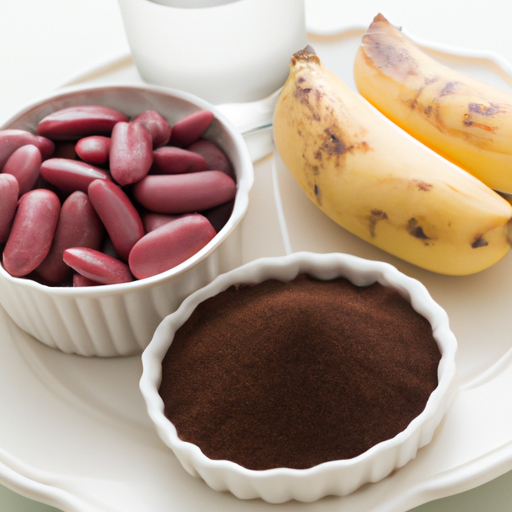Anemia (also spelled anaemia) is a decrease in the total amount of red blood cells (RBCs) or hemoglobin in the blood, or a lowered ability of the blood to carry oxygen. When anemia comes on slowly, the symptoms are often vague and may include feeling tired, weakness, shortness of breath, and a poor ability to exercise.
You may have no symptoms at first, or very mild ones. However, as anemia gets worse some telltale signs become apparent. Here are the most common ones.
- You?re exhausted and weak
The most common symptom of iron-deficiency anemia is fatigue. Without enough oxygen being delivered to your cells you aren?t able to break down nutrients and make energy. Without energy, you continually feel tired and weak throughout the day and it can be difficult to complete your daily tasks.
- You have strange cravings for things that aren?t food
People who are anemic may develop a syndrome called?pica, which causes strange cravings for non-food items such as dirt, ice or clay. There are some theories as to why iron deficiency leads to pica, but the true cause is unclear.?Research shows that the cravings seem to go away when patients receive iron supplements.
- You get headaches or feel dizzy
Headaches, dizziness and lightheadedness can all be symptoms of anemia caused by a lack of oxygen to the brain. For some people, this may even lead to fainting.
- Your heartbeat is irregular
Heart palpitations, an irregular heartbeat or an increased heart rate can be signs that your body is attempting to compensate for its lack of energy. By circulating blood faster your body is trying to spread around the small amounts of available hemoglobin in order to deliver more oxygen.
- You?re short of breath
When your organs do not get enough oxygen your lungs may start to overcompensate and work harder to bring in more oxygen. For example, if walking up stairs leaves you winded or you can barely catch your breath during a workout (and these are new occurrences) your iron levels may be far too low.
- You have chest pain
Your heart needs oxygen to function. Without enough hemoglobin and oxygen, the heart tissue will behave as though you have impaired blood flow. In very severe anemia this can lead to a myocardial infarction or what is more commonly known as?a heart attack.
- Your legs tingle
Low iron stores are associated with restless leg syndrome. This is a strong, unpleasant urge to move your legs. This can also make it hard to fall asleep at night. Fortunately, iron supplements have been shown to help make this condition go away in people who are deficient.
- Your skin is pale
When your heart and brain, your two most vital organs, are not getting enough oxygen your body sends more blood there, depriving other parts of your body in the process. When less blood flows to your skin you?re likely to lose some of your color or skin tone. With severe anemia, the skin can look grey or ashen.
- Your nails are brittle
Nails like every other living cell in your body need oxygen to breathe and grow. Without it, the nail beds stop making healthy new cells leading to weak and brittle nails over time.
- Your hands and feet are always cold
Although it may sound harsh, your extremities are treated by your body as non-essential body parts, and consequently,?blood flow to those areas may become limited when you are anemic. Limited circulation in your?hands and feet?can cause them to feel cold and often numb.
How to treat anemia caused by?iron deficiency anemia food for iron
anemia food for iron
I typically recommend?to my patients iron supplements?that contain the ferrous form of iron, which your body can absorb easily. If you are seriously anemic you may need to continue taking iron supplements for up to a year. In this case, you should heed the following precautions:
- Excess iron intake can be harmful. Symptoms of iron overload include fatigue, vomiting, diarrhea, headache, irritability, heart disease and joint problems.Iron supplements (and all supplements and medications) should be kept out of the reach of children. Iron poisoning is one of the most common causes of accidental poisoning in young children and can prove fatal in a matter of hours. Symptoms of iron poisoning in a child include dizziness, confusion, nausea, vomiting and diarrhea. Seek medical help immediately.Watch for side effects. Taking iron supplements with food can help prevent common side effects which may include nausea, diarrhea, constipation, and stomach pain. Let your doctor know if you continue to have side effects. Different formulations are available.Watch for drug interactions. Tell your doctor if you are being treated for another condition. For example, calcium supplements interfere with iron absorption, so it is best to take them at different times of the day.The body absorbs iron best when taken in a mildly acidic medium. For this reason, your doctor may suggest taking iron with a half-glass of orange juice or with vitamin C. Your doctor may also recommend that you increase the amount of iron in your diet. Good dietary sources of iron include red meat, beans, egg yolk, whole-grain products, nuts and seafood. Many processed foods, as well as milk, are also reinforced with iron.
Your doctor will monitor your red blood cell counts during treatment. If your anemia doesn?t improve with iron supplements, he/she will look for some other underlying cause. In rare cases, your doctor may prescribe iron injections or give you iron intravenously. In extremely rare cases of life-threatening iron-deficiency anemia, treatment may involve a blood transfusion.
—————-
{Information Sourced from: westchesterhealth}
